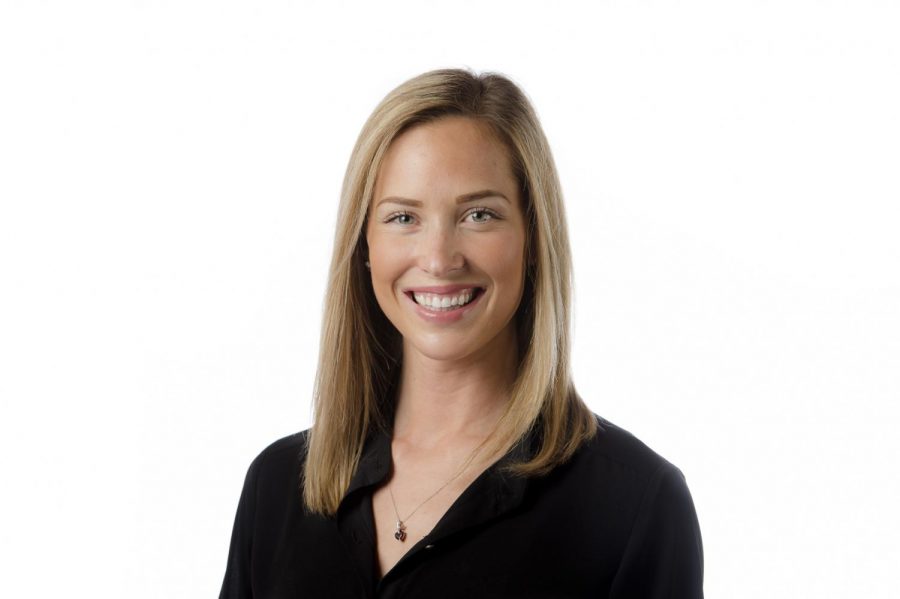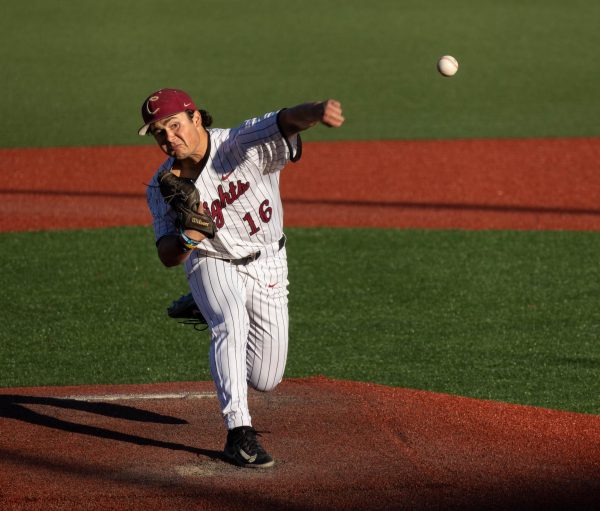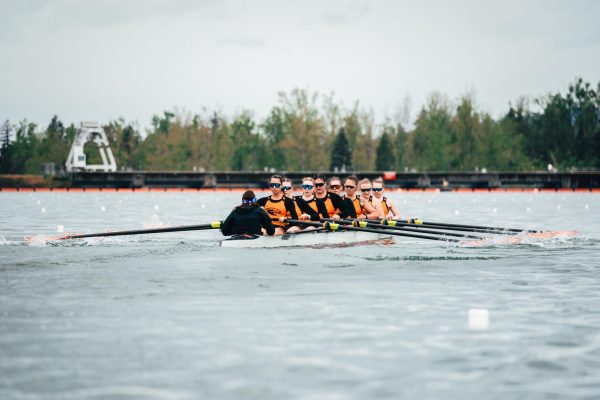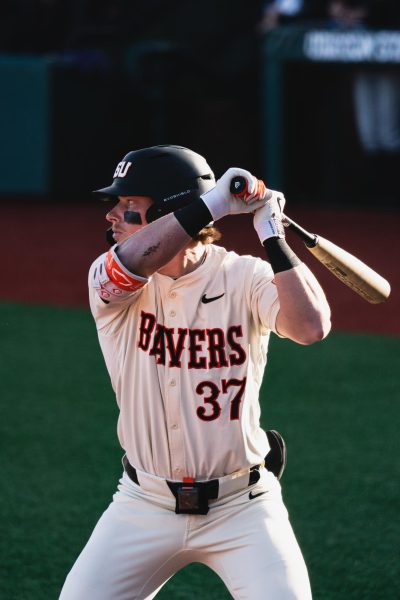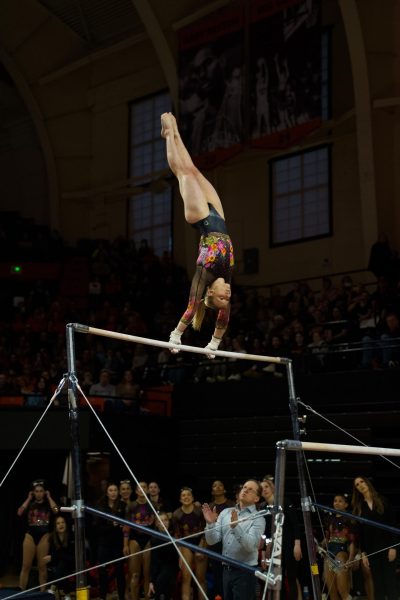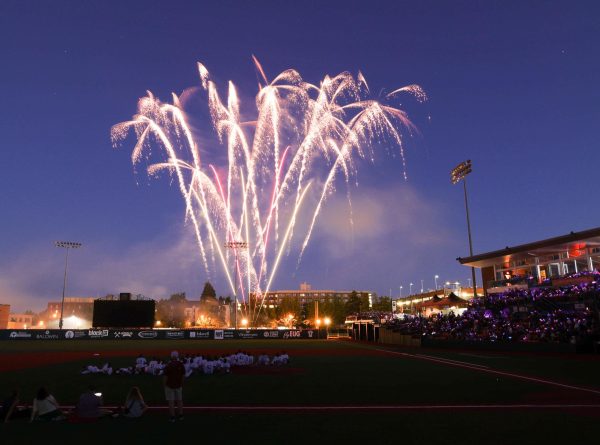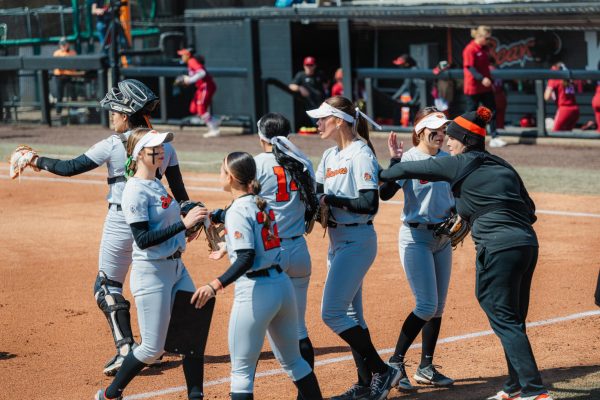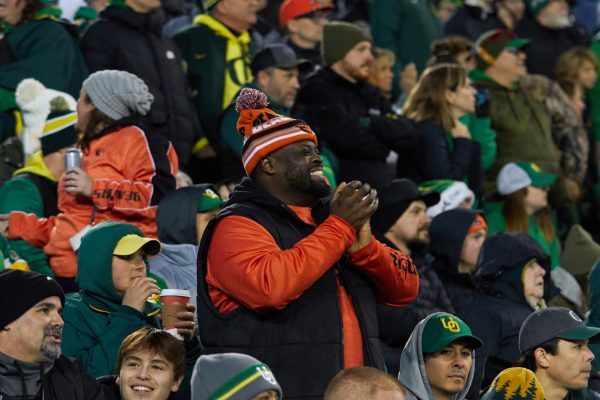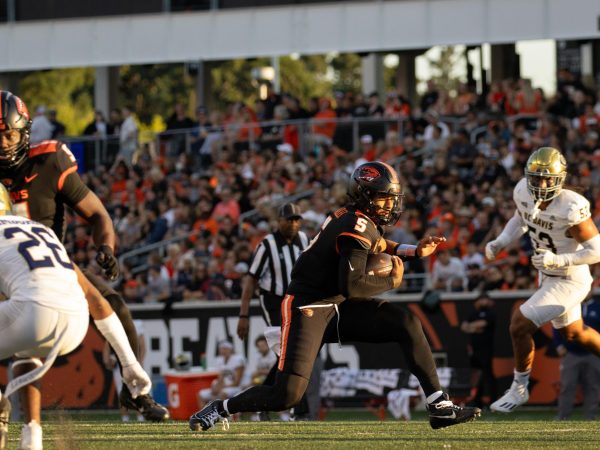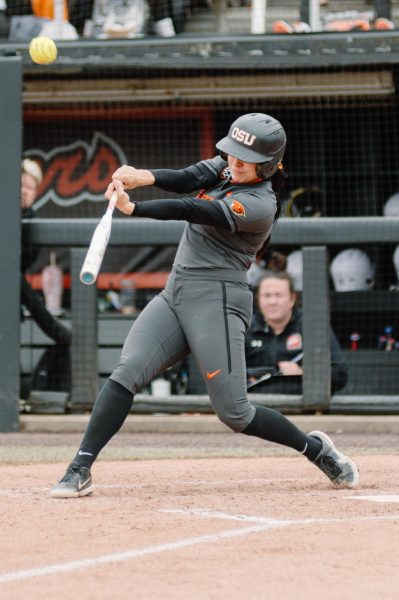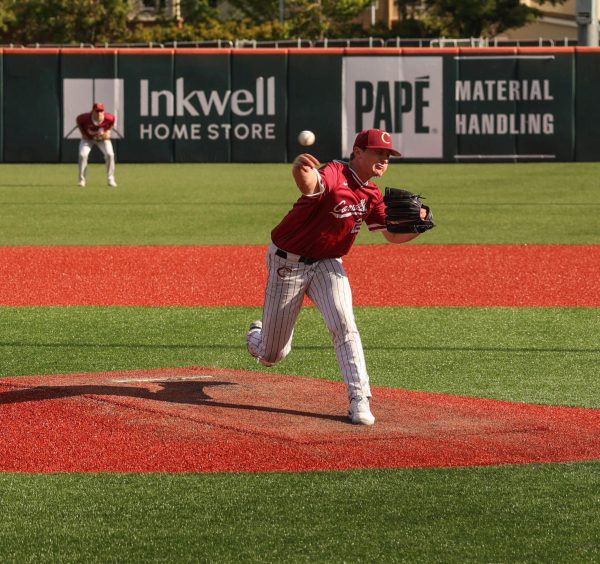Goodman’s career adjusting in COVID-19
May 18, 2020
Lindsey Goodman’s career path might sound too good to be true– guided along like a storybook ending, step by perfect step. Transitioning from student-athlete to assistant athletic director for student-athlete development at Oregon State, Goodman found her ideal job.
But Goodman’s professional role was not mapped out in any picture-perfect plan. In fact, after her days as a student and track and field athlete at the University of Idaho were done, Goodman left her first university stop with a bachelor’s degree and First-Team All-WAC honors, but no plan with what to do outside of track and field.
“It’s kind of ironic because when I left college, I didn’t actually have a plan,” Goodman said. “I was so invested in track and field and my identity was completely wrapped around being a track and field student-athlete.”
Goodman may not have had a clear cut plan for the future, but knowing the kinds of things she enjoyed, she was able to find her path along the way. Recognizing that she was “good at school” and how much she “liked sports,” Goodman was able to parlay her values into even more collegiate success when she was accepted into the Master’s program at Idaho State University.
After earning her Master’s degree in athletic administration in 2011, Goodman’s career began taking shape. Now five years later, Goodman’s work with student-athlete development has placed her in a role to help guide collegiate athletes to a career after college and avoid the same struggles that she went through herself.
“I think it’s kind of divine that I fell into this field because I did have an identity crisis,” Goodman said. “I’ve kind of fallen into this space where I’ve just jumped from door to door and as a door opens I kind of walk through it. And so now the neat thing is I get to help student-athletes not have their identity crisis that I had. And helping them prepare and really talk about what that transition looks like.”
Being in charge of helping guide student-athlete development for all Oregon State athletics, Goodman is tasked with a wide range of responsibilities. From organizing charity events to team celebrations to even teaching courses on professional development and how to apply the skills learned in athletics to the workforce, the assistant athletic director has led a busy life since arriving in Corvallis in 2016 with a daily schedule that rarely ever holds the same exact tasks as the day before.
“No day looked the same,” Goodman said. “Oftentimes you would see me planning for programs or events or working on welfare issues for student-athletes. Working with our clubs and groups… student-athlete development really is about the personal, the professional, and the leadership development of our student-athletes.”
Through the years and even recently, the day-to-day responsibilities of Goodman’s work have required much change in how she approaches them. However, not everything has been the same for Goodman and the Oregon State athletic department since the COVID-19 outbreak, which has forced both her and her peers into overcoming the obstacles of a digital work environment.
“I think it’s just a matter of trying to schedule and organize and not ‘Zoom people out,’” Goodman said. “I continue to hear this from colleagues and from my own personal experience and student-athletes is that… you sit in front of a computer all day long and become this ‘Zoom zombie’… you’re starving for some personal connection but you just still aren’t necessarily getting that through the computer.”
The presence of COVID-19 has hindered some of Goodman’s work while outright making other elements of it impossible. The courses taught by Goodman to student-athletes have not yet been able to make the transition from in-person to a digital course, but “on the docket to talk about this Summer” is a plan to adapt that course to a remote setting in case campus is still closed by the Fall.
Some parts of Goodman’s job have been made more difficult like the consistent Zoom meetings, some parts have been postponed altogether like the athlete development courses, but thankfully, much of the assistant athletic director day-to-day responsibilities have managed to remain the same in a digital work setting.
But the effects of COVID-19 stretch beyond the professional environment, and Goodman has felt the stress of the disease affect her personal life as well. Affecting Goodman more than her hobbies, however, has been the global effect the pandemic has had on sports. Being the avid sports fan that she is, Goodman recalled a feeling of shock when the NCAA officially put a freeze on sports.
“I think for me personally, it was kind of surreal,” Goodman said. “I remember I was sitting at my desk at work in my office and I got the news that they were going to cancel March Madness… and I had a visceral response to that. I could actually feel my blood pressure rise. My heart sped up.”
Sports normally serve as a welcome distraction, both for Goodman and other sports fans alike. But rather than missing the personal enjoyment that athletics can provide, Goodman’s visceral feelings towards the loss of sports stems more from heartbreak for the athletes rather than any personal loss on her end.
“My heart just completely shattered,” Goodman said. “It completely broke for our senior student-athletes that couldn’t finish their seasons. It completely broke for all of them who had something taken away from them.”
More than anything though, Goodman’s views on the cancellation of sports stem from what a worldwide freeze on organized athletics means for the seriousness of COVID-19. Nothing else in the history of the NCAA has put a pause on sports like the current pandemic, which has caused Goodman a fair deal of worry.
“I’ve never seen something like this in collegian athletics, I’ve never seen something bring collegian athletics to a screeching halt so quickly,” Goodman said. “And at that moment I think I realized how serious COVID-19 actually was.”
Throughout the serious nature of COVID-19, and the stress associated along with its worldwide effects, Goodman and her family have been working hard to keep as entertained as possible.
Much of that entertainment pre-quarantine was found through staying active and spending time outdoors as an “avid waterfall hunter” scouring nature trails on hikes. Those hobbies too have changed since COVID-19, but Goodman has been able to stay engaged in walks through some of the isolated, more socially-distant areas near her home.
And while working hard to keep in touch with her hobbies, Goodman has worked as well to remain as positive as she can during this difficult time. And though rapid change has brought stress and uncertainty to Goodman’s life and beyond, she practices patience and self-compassion whenever she needs it, and hopes the rest of the world can find the time to do the same.
“I think it’s important for people to practice patience and kindness and to try and take a deep breath,” Goodman said. “I think it’s just important to remember that this is hard for everybody, and we’re all in this together, and it’s important to be kind. Not just to the people around you, but to yourself.”












































































































